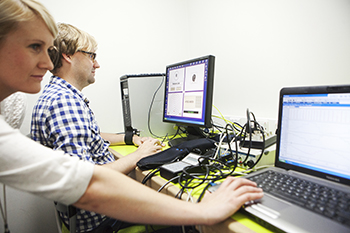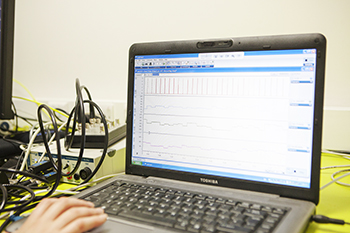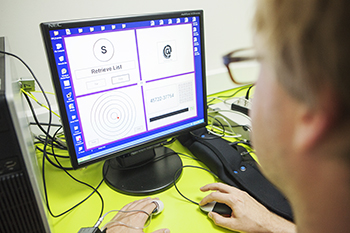-
Study
-
Quick Links
- Course Search
- Unlock Your Potential
- Still time to Apply
- Higher and Degree Apprenticeships
- Continuing Professional Development
- Still time to apply
-
Undergraduate
- Course Search
- Application Guides
- UCAS Exhibitions
- Foundation Years
- Fees and Funding
- School & College Outreach
- Information for Parents
-
Postgraduate
- Course Search
- Application Guide
- Postgraduate Research Degrees
- Flexible Learning
- Fees and Funding
- Change Direction
- Register your Interest
-
Student Life
- Students' Union
- The Hub - Student Blog
- Accommodation
- Northumbria Sport
- Support for Students
-
Experience Northumbria
- Open Days & Events
- Virtual Tours
- Campus Tours
- Life in Newcastle
-
-
International
International
Northumbria’s global footprint touches every continent across the world, through our global partnerships across 17 institutions in 10 countries, to our 277,000 strong alumni community and 150 recruitment partners – we prepare our students for the challenges of tomorrow. Discover more about how to join Northumbria’s global family or our partnerships.
View our Global Footprint-
Quick Links
- Course Search
- Undergraduate Study
- Postgraduate Study
- Information for Parents
- London Campus
- Northumbria Pathway
- Sign up for Information
-
International Students
- Information for Students
- International Events
- Application Guide
- Entry Requirements and Education Country Agents
- Global Offices
- English Requirements
- English Language Centre
- International student support
-
International Fees and Funding
- International Undergraduate Fees
- International Undergraduate Funding
- International Masters Fees
- International Masters Funding
- International Postgraduate Research Fees
- International Postgraduate Research Funding
-
International Partners
- Agent and Representative Network
- Global Partnerships
- Global Community
-
International Mobility
- Information for Northumbria Students
- Information for Incoming Exchange Students
-
-
Business
Business
The world is changing faster than ever before. The future is there to be won by organisations who find ways to turn today's possibilities into tomorrows competitive edge. In a connected world, collaboration can be the key to success.
More on our Business Services -
Research
Research
Northumbria is a research-rich, business-focused, professional university with a global reputation for academic quality. We conduct ground-breaking research that is responsive to the science & technology, health & well being, economic and social and arts & cultural needs for the communities
Discover more about our Research -
About Us
-
About Northumbria
- Our Strategy
- Our Staff
- Place and Partnerships
- Leadership & Governance
- Academic Departments
- University Services
- History of Northumbria
- Contact us
- Online Shop
-
-
Alumni
Alumni
Northumbria University is renowned for the calibre of its business-ready graduates. Our alumni network has over 246,000 graduates based in 178 countries worldwide in a range of sectors, our alumni are making a real impact on the world.
Our Alumni - Work For Us
What will I learn on this module?
In this module, you will be able to independently conceptualise, plan and undertake a novel piece of research that contributes to psychological knowledge and understanding. You will critically evaluate current theories and evidence to generate your own research question. You will use the relevant ethical guidelines to design a feasible project plan. You will develop your independent research skills during this module and identify points of collaboration with supervisors, research staff and other potential stakeholders. You will use a variety of relevant skills, techniques, and research methods to implement your study and finally, you will have the opportunity to disseminate your findings in written form.
How will I learn on this module?
You will engage in an independent piece of psychological research with the support and guidance of an individual supervisor. In semester 1, you will identify a research area of interest. You will meet with your supervisor regularly during Semester 2 to discuss the development of the research. Supervisors will provide guidance with respect to specific skills, techniques, and research methodologies, as well as information relating to ethical issues and processes. Across the year, you will receive further guidance in the form of lectures to support your progress. In Semester 3, you will continue to meet with your supervisor in line with the stage of your study. During this time, supervisors will provide guidance on topics relevant to your stage of progression, such as practical data collection issues or interpretation of findings.
How will I be supported academically on this module?
Scheduled sessions will be provided throughout the year to support the MSc Thesis. You will receive sessions on choosing a thesis topic, managing your progression, ethics, and finalising your thesis. You will also receive information about the thesis process via email, and resources, including assessment information, will be available via the e-learning portal.
What will I be expected to read on this module?
All modules at Northumbria include a range of reading materials that students are expected to engage with. Online reading lists (provided after enrolment) give you access to your reading material for your modules. The Library works in partnership with your module tutors to ensure you have access to the material that you need.
What will I be expected to achieve?
Knowledge & Understanding:
1. Critically evaluate knowledge, theory, and evidence relevant to the psychological discipline of the project.
2. Understand how theory and research can be applied to solutions in real-world contexts.
Intellectual / Professional skills & abilities:
1. Individually conceptualise and plan a psychological research study that addresses a current issue with the clear intention of advancing understanding within the domain.
2. Communicate the findings of the research in written form.
Personal Values Attributes:
1. Recognise and apply the relevant ethical guidelines to the design of a psychology-based research project.
How will I be assessed?
Ethics process: You are required to gain full ethical approval before beginning data collection.
Formative Assessment on Ethics: Regarding ethics, you will receive both written (email) and oral feedback throughout the year from your supervisor.
MLOs: K&U 1, 2; IPSA 1;
Once you have developed and submitted your final ethics application it will be entered into the university ethics process. The ethics review process may require you to adjust your submission further in order to gain ethical approval.
MLOs: PVA1
Summative Assessment on Thesis: You will write a thesis in journal submission format of up to approximately 8000 words. Your mark will constitute 100% of the module mark. You are required to gain full ethical approval before beginning data collection.
You will receive individual written feedback on the thesis highlighting strengths and weaknesses of your work, along with areas for improvement.
MLOs: K&U 1, 2; IPSA 1; IPSA 2
Pre-requisite(s)
N/A
Co-requisite(s)
N/A
Module abstract
The aim of this module is to provide students with an opportunity to undertake an independent piece of psychological research with the support and guidance of an individual supervisor. Students will have the chance to work with state of art facilities in a research-rich environment conceptualising, planning, and implementing a research study of their own. Students will be able to identify and develop their research skills to become more experienced, competent researchers able to communicate their findings in written form. The project represents the degree’s capstone and will enhance employability through gaining diverse skills, including project and time management, planning, problem-solving, working with others, and communication skills.
Course info
Credits 60
Level of Study Postgraduate
Mode of Study 12 months Full Time
1 other options available
Department Psychology
Location City Campus, Northumbria University
City Newcastle
Start September 2025
All information is accurate at the time of sharing.
Full time Courses are primarily delivered via on-campus face to face learning but could include elements of online learning. Most courses run as planned and as promoted on our website and via our marketing materials, but if there are any substantial changes (as determined by the Competition and Markets Authority) to a course or there is the potential that course may be withdrawn, we will notify all affected applicants as soon as possible with advice and guidance regarding their options. It is also important to be aware that optional modules listed on course pages may be subject to change depending on uptake numbers each year.
Contact time is subject to increase or decrease in line with possible restrictions imposed by the government or the University in the interest of maintaining the health and safety and wellbeing of students, staff, and visitors if this is deemed necessary in future.
Useful Links
Find out about our distinctive approach at
www.northumbria.ac.uk/exp
Admissions Terms and Conditions
northumbria.ac.uk/terms
Fees and Funding
northumbria.ac.uk/fees
Admissions Policy
northumbria.ac.uk/adpolicy
Admissions Complaints Policy
northumbria.ac.uk/complaints
















